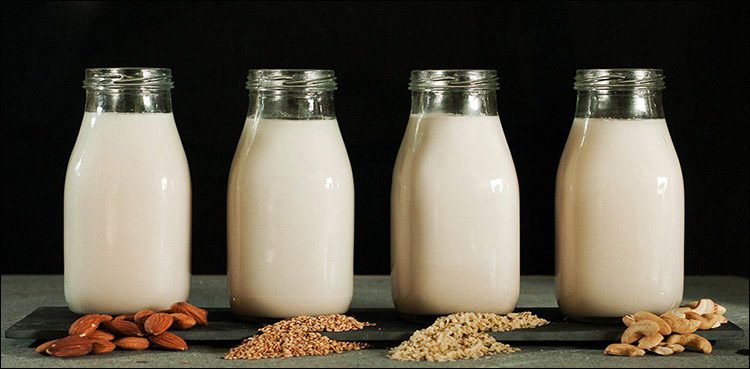Dairy-free drinks may contain double the number of calories than cow’s milk: Study

Dairy-free drinks are often touted as a healthy substitute for regular milk. But the products can contain more than double the number of calories, 30 times the fat and more sugar than cow’s milk, research has found.
The growing trend for dairy-free lifestyles has seen a surge in the range of flavored kinds of milk such as almond or hemp.
But customers are not just paying more – they are not doing their bodies any favors.
A grande oat latte contains 22.8g of sugar – six grams more than the same drink made with skimmed milk.
It also has more than twice the number of calories – 269 compared with 128 – and 30 times the amount of fat. And a coconut latte contains 9.9g of fat compared to 0.3g in a skimmed milk version – as well as 22 more calories.
At a cafe, a medium soy latte contains 6g of fat – more than six times that of a medium skimmed milk latte – and 134 calories compared with 103 in the milk option.

And although the dairy-free milk contains less sugar than the drinks made with real milk, the sugar in cow’s milk is naturally occurring lactose rather than added sugar.
You shouldn’t be thinking this is necessarily a healthier choice,’ she said.
Speaking about how dairy-free milk is often labeled as organic, she said: ‘Whilst organic may appeal in terms of having better health credentials when it comes to dairy alternatives this often isn’t the case.
‘That’s because nearly always across the board organic products aren’t fortified with those essential things we need – things like protein, things like calcium.
‘Dairy has its place in a healthy, balanced diet.’

Many of the dairy-free milk, such as almond, contain a small percentage of nuts, often no more than 2 to 3 percent.
On average, 100ml of almond milk contains the equivalent of just 2.5 nuts, while the same amount of coconut milk is just 3.5 percent raw coconut.
Miss Jones added: ‘Mostly you are getting very expensive water’.
The market value for free-from products grew by 40 percent to £806million last year.
Related News

Pakistan assures BAT of policy reforms to curb Illicit tobacco trade
ISLAMABAD, FEB 12 /DNA/ – Federal Minister for Finance and Revenue, Senator Muhammad Aurangzeb, heldRead More

Govt pledges accessible cancer treatment for all deserving patients
ISLAMABAD, Feb 4 /DNA/: Federal Minister for Poverty Alleviation and Social Safety, Syed Imran AhmadRead More



Comments are Closed